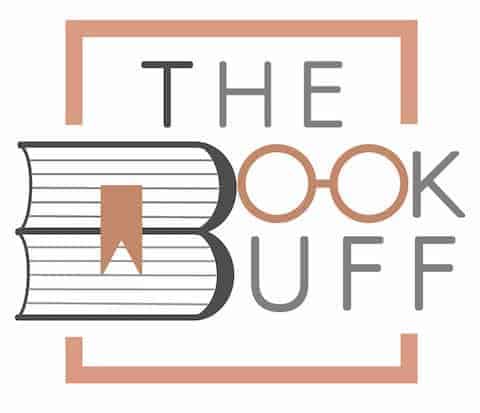Why is Reading Good for You? [With 21 Key Benefits!]
Disclosure: This post may contain affiliate links. – meaning I may get a commission if you decide to purchase through my links, at no additional cost to you.
Perhaps you are someone who is currently not a frequent reader because you cannot see the necessity to read. Or perhaps you are somebody who reads a lot for leisure but is not aware of all the benefits you unconsciously receive as a result of your reading.
Whatever your situation, you can rest assured if you are planning to take on reading as there are a ton of benefits of reading!
Generally speaking, reading is good for you as it increases your knowledge, vocabulary, confidence, speaking skills, and improves creativity, and memory among other things. Reading also increases neuron activity in your brain and keeps it active. Moreover, you receive these benefits subconsciously.
In this article, we will discuss 21 benefits you receive when you are a frequent reader. When you are aware of all the benefits, I bet you will enjoy reading even more!
1. Improves Reading Speed
An improved reading speed is good for you as it enables you to use reading time effectively. The faster you read, the more books you can enjoy, and you can deal faster with work documents. But how do you increase your reading speed?
The key to reading faster is to keep on reading! When you read, your brain keeps on developing more and more “shortcuts” to make it easier and faster for you to read.
To explain this, think of the time when you started to read as a child. First, you sounded every letter and you practiced that a lot until you’d reach the stage where you could sound the words without sounding the letters first.
Then you learned to read silently and eventually you discovered that you read faster because your brain didn’t have to analyze every single word all the time, but it started to recognize phrases and even sentences.
So, keep on reading – it is good for you!
2. Improves Vocabulary
Sometimes we are astonished by people’s large vocabulary that enables them to use and explain not-so-well-known words. Most of us have to rely on dictionaries (or in our modern world on Google) to find the meaning of a word unknown to us or to find a “new” word to use.
When you ask these persons how they manage to know so many unfamiliar words, most of them will tell you that they’ve picked it up in books they’ve read.
Through reading, you subconsciously learn new words and the way they fit into phrases and sentences. These words and the correct way to use them are stored in your brain and become part of your speaking and writing vocabulary.
Through reading, you can develop a comprehensive vocabulary allowing you to partake in conversations about various topics and understand what experts are talking about during discussions.
It enables you to contribute to conversations and discussions using the correct terminology.
3. Increases General Knowledge
You benefit from reading as it is a good way to increase your general knowledge. The late writer, Tomie dePaola, said “Reading is important because if you can read, you can learn anything about everything and everything about anything.”
When reading a lot, like most people who read a lot, you will experience that over time you get familiar with a variety of genres and topics.
This subconsciously broadens your general knowledge. Research has shown that a strong knowledge base makes it easier to learn new things and solve new problems.
Reading is important because if you can read, you can learn anything about everything and everything about anything!
Tomie dePaola
People with a wide general knowledge can take part in diverse discussions and informal conversations.
If you are known as someone with a large general knowledge, you quickly become a favorite guest. The host can “utilize” you to mingle with any of the guests and know that you will most probably find a common topic to chat about.
4. Enhances Visualization

Reading is good for all of us as it enhances our visualization abilities. Generally speaking, the better you can visualize the better your life is organized.
Visualizing is when you create mental pictures in your mind. To create the picture your brain taps into your prior knowledge. Your brain makes connections and gathers information from previous experiences.
But your brain doesn’t always make a difference between real-life experiences and images stored in your brain from books you’ve read.
When you read, you experience to a certain extent what the characters in the book are experiencing, or at least visualize the events or places. Your brain uses these images and experiences as part of your prior knowledge when you visualize something.
Thus, the more you read the better your visualization capabilities become.
5. Reduces Stress
According to a 2009 study at the University of Sussex that was reported in “Business Insider”, reading relaxes your body by lowering your heart rate and easing the tension in your muscles. It also helps to relieve mental stress. They found that 68% of the test group experienced stress reduction through reading.
In another study amongst students, it was also found that recreational reading reduced psychological distress. According to the study, students with the least stress and who were more autonomously motivated had read more books than the rest of the test group.
The study concluded that recreational reading is a simple and cost-effective tool to help people cope with stress.
Many psychologists have the view that reading is better and faster than any other method of relaxation. It is better than drinking a hot drink or listening to music.
6. Improves Memory
It is common knowledge that reading improves your memory. When you read a book you have to remember characters, scenes, and the flow of the story. Your short-term memory and recall capabilities increase while you read.
But reading also has a more long-term influence on your memory. Reading brings your brain into action and allows your mind to process and store the events you are reading about and can keep it in memory for long periods.
Just think of how much detail you still remember from the stories you’ve read as a child!
Reading also engages quite a few other brain functions like phonemic awareness, comprehension, and visual and auditory processes. All these functions are being processed in the part of the brain controlling memory. The more you read, the more you keep your memory strong.
7. Enhances Your Writing Skills
Whether you are an author wanting to enhance your writing skills or just someone who likes to write documents and communication notes better, it is good for you to read books.
By reading books you are exposed to a variety of writing styles, and reading different styles helps you to develop your own unique style of writing. You can say that reading books is an informal way to study grammar in context.
By reading a book and taking note of the author’s way of using words, you can learn a lot to apply in your own writing. Reading improves your writing skills. Generally, better readers become better writers.
If you are an author yourself or perhaps have to prepare speeches frequently, the reading of books can give you new ideas and techniques to use. Interestingly, most working authors make time every day to read.
8. Enables Focus and Concentration
Reading a book is different from television that bombards you simultaneously with sounds, images, and information. This fast-paced bombardment often confuses you about a specific topic or story as your brain just can’t process all the input.
When reading a book your brain lets you focus on the book and you can concentrate on what you read.
Books require active engagement and concentration as they completely absorb your mind. You have to make an effort to read words, and to figure out what they mean in the specific context.
When you read a lot your brain gets used to focusing and concentrating on a subject. This skill is important in everyday life as well.
If you can focus on your book, you can also focus on work documents and other tasks you do every day. Thus, reading helps you to develop your focusing and concentration skills.
9. Helps in Networking and Conversations
Books that you’ve read can be a great conversation starter and the people you meet in the conversation can even be the beginning of a specific network around the topics you’ve talked about. Reading also helps you bond with new people.
If you are a frequent reader you have multiple stories to tell and topics to discuss. Your reading habit can easily make you the center of attention because of your knowledge.
As a good reader, you most probably have already developed the ability to objectively critique what you’ve read. This skill of objective critique also makes you popular.
Part of a successful conversation is that you have to be able to listen to others. Reading teaches you to “listen” to the characters in the book. This listening skill helps you to be an ideal person to be included in any conversation or network.
10. Free Source of Entertainment

Reading is a hobby that costs you next to nothing. You don’t have to buy any book to enjoy reading. Due to library services, you can read as many books as you want to for free.
Most libraries are stocked with books from almost every genre. And there are books for every age group. If you want to read fiction or non-fiction you just have to ask the librarian if you don’t find it on the shelves, and it will be ordered for you from another library.
To broaden your general knowledge you can also read magazines, newspapers, scholarly journals, and a variety of other printed materials in the library.
11. Makes You Empathetic
Empathy is a quality that can be developed from reading books. When you read a book for leisure, you identify with the characters in the book. Many of these characters encounter “problems” in the book and you actually feel empathy for them.
You can understand the character’s problem and sometimes you even wish you can help the character to overcome the problems.
This ability to feel empathy overflows into real life, and better relationships can be formed as a result. Not only do you learn to have empathy through reading, but you also learn to appreciate others and what they are doing for you.
The Director at Northcentral University’s Graduate School, Dr Wade Fish, said, “Reading expands a person’s appreciation toward other life experiences the reader is not personally experiencing, especially when reading topics that are not related to that reader’s job or lifestyle.”
12. Travel Back in Time
By reading books you get the opportunity to travel back in time!
To read a story set in a previous era generally gives more satisfaction than just reading the historical facts in a scientific journal or book. So, if you want to find out how people have lived at a specific time in the past, get yourself a book set in that period.
You can read a book by a current author who has set the story in the period you are interested in, but it is always better to try and read a book written by an author from that period.
Another way to travel back in time with a book is to read biographies, autobiographies, journals, and diaries written in the period you want to learn more about.
13. Experience Other Countries and Culture
Through reading, you can experience other countries and different cultures even if you cannot visit the countries in person.
There are various types of reading material you can use in this regard. You can read a translation of a novel in a foreign language.
Most translations nowadays are as literally translated as possible and you can pick up the linguistic nuances which will give you a good indication of cultural customs and way of living.
If you don’t like to read fiction you can read an autobiography of a person from the country you are interested in. It is a great way to learn about a country’s customs.
If you love to travel, you will enjoy travelogues. They take you on a journey through a foreign country and are ideal for when you can’t physically travel.
14. Reading Can Help You Fall Asleep

Reading can be helpful to decrease the amount of time it takes to fall asleep.
Stress tends to build up throughout the day and reading a book is known to be a stress reducer and will also help you to fall asleep faster.
Reading helps you to fall asleep fast as the book distracts your brain with new information or someone else’s story. By reading, your mind is taken off of your own troubles.
This is the same principle why parents make story reading part of their kids’ going to bed ritual. Your kid relaxes and is “transported” experiencing a “wonderland” and falls asleep.
15. Makes You a Better Speaker
Reading definitely helps to make you a better speaker. There is a strong relationship between reading and speaking skills.
To be a good speaker you need, amongst other things, a large vocabulary and you must have the ability to use grammar correctly. Reading contributes to both these aspects, and the assumption that reading improves speaking skills is widely accepted nowadays.
In 2012 for instance, studies at the Ishik University have found that reading and speaking skills have a reciprocal relationship. This means that reading improves speaking skills.
When you read a good book, you see how language experts use language and grammar effectively and you expand your vocabulary with new words that you discover in the books you are reading.
16. Improves Analytical Skills
When you read you’re building images, thoughts, and opinions in your head.
To build these images you use critical thinking and logic to process the information in the book. It is only when you analyze what you read that you understand the concepts and ideas the author wants to convey.
And, the more you train your brain to analyze information by reading many books, the easier it becomes to implement analytical thinking in everyday activities.
Reading requires analytical skills and your brain comes into the habit of always looking at what you are doing or planning from an analytical angle.
17. Improves Your Creativity
Reading is one of the best ways to improve your imagination and creativity.
The more you read, the more ideas you find that might lead to a new idea or project you can begin. Creativity comes out of the pool of knowledge and inspiration you already have. Reading adds to this pool of knowledge, makes you smarter, and helps you to open up a world of new information.
Martha C. Pennington and Robert P. Waxler state in “Why Reading Books Still Matters: The Power of Literature in Digital Times”, that literature has a key role in developing imaginative and magical thinking.
18. Helps with Anxiety and Depression
As mentioned earlier in this article, it has been found that reading can reduce stress by up to 68% of people experiencing stress.
But reading also helps depressed people, even if the depression is so intense that the person is a patient in a hospital or other institution.
It has been found that depressed people benefit from reading stories out loud. The positive result is enhanced if the person reads out loud with other people. It also helps if the depressed person reads self-help books which often help to elevate their mood.
In short, if you feel depressed or are going through a period of anxiety, force yourself to read as much as you can and you will be surprised by the result.
19. Makes You Happy

Reading can put your brain into a pleasurable trance-like state. It is similar to meditation, and it brings the health benefits of deep relaxation and inner calm.
According to an article in “The New Yorker” reading fiction lets you lose the sense of the self and gives you a feeling of happiness.
The practice of bibliotherapy is built on this point of view. It is the term used for the ancient practice of encouraging reading for a therapeutic effect. In ancient Roman times, there was an inscription above the entrance to the Thebes library which read: “Healing place for the soul.”
Sigmund Freud used reading sessions during psychoanalysis to make his patients happier.
So, whether you read on your own or go for “happiness therapy” a good story will make you forget about your troubles and make you happier.
20. Makes You Live Longer
A combination of the many influences reading has on you contributes to conditions and circumstances helping you to live longer. Reading mainly makes a mental contribution to help you live longer.
A study was done in 2014 to assess the impact of cognitive leisure activities such as reading or playing sudoku on cognitive impairment and dementia in elderly people. The study concluded that individuals with greater engagement in both literacy and visuospatial activities were more likely to have no cognitive impairment!
Existing neural pathways in your brain come to life when you are reading.
If you keep on reading and sometimes include complex works in your reading list – poetry especially – it helps the brain to stay elastic and active. It is believed that reading can decrease mental decline for the elderly by about 32%.
Reading also helps you to keep a good social network in place. Book discussion groups and reading meetings can for many years form part of the elderly’s social life.
According to studies, elderly people who regularly read books are two and a half times less likely to develop Alzheimer’s. Reading can help to ensure a longer mentally healthy life.
21. Keeps your Brain Healthy
Reading definitely has a positive influence on your brain and helps to keep it in good working order. Reading involves a complex network of circuits and signals in the brain.
Researchers are using MRI scans to confirm that reading activates several sections of your brain. In one study in 2013, researchers used MRI scans to specifically measure the effect of reading a novel on the brain.
The participants in the study read the novel “Pompeii” over 9 days. Brain scans indicated that during the 9 days and for days afterward, the brain connectivity was very active, especially in the somatosensory cortex. This is the part of the brain that responds to physical sensations.
As your reading ability develops and matures, a complex of networks in the brain gets stronger and more sophisticated and keep your brain “young”.
Bonus – Makes You a Smarter Person Overall!
Reading makes you a smarter person overall, not only because of your general knowledge that increases when you read but also because you learn how to communicate your knowledge to others.
It can actually be said that all the aspects regarding frequent reading discussed in this article contribute to making you a smarter person overall.
The knowledge you gain and the way you communicate it to other people in private conversations and public is proof of the influence of reading. This acts as a contributing factor in your success and reading can contribute to making you rich! Thus, often you will notice that successful people are voracious readers
Because parts of your brain are stimulated by reading you are unconsciously affected by what you read.
The journal, “Insider,” reported a study that showed that if a person reads 30 pages before going to sleep, MRI tests the following morning shows heightened connectivity in the left temporal cortex of the brain – the part of the brain associated with language and intelligence.

About the Author
Akansha is a former business journalist and a seasoned communications professional. She is the founder of TheBookBuff, an avid storyteller, and a lifelong biblophile! Check out her profile page to know more about Akansha.

![Is the Kindle Oasis Worth Buying? [User’s Full Review!]](https://thebookbuff.com/wp-content/uploads/2023/08/Kindle-Oasis-V2-300x225.jpeg)
![How to Read While Walking? [Safety, Tips, Benefits & More!]](https://thebookbuff.com/wp-content/uploads/2021/10/handsome-young-male-student-reading-book-while-wal-2021-08-31-04-13-00-utc-optimized-300x200.webp)
![How Much Do Kindle Books Cost? [With Data Proof!]](https://thebookbuff.com/wp-content/uploads/2021/11/james-tarbotton-gm18kqu9TxQ-unsplash-optimized-300x199.webp)
![How Does Reading Affect Your Brain? [7 Positive Effects!]](https://thebookbuff.com/wp-content/uploads/2021/11/reading-with-mom-2021-09-24-02-55-24-utc-optimized-300x200.webp)

![How Long Does Kindle Take to Charge? [Complete Guide!]](https://thebookbuff.com/wp-content/uploads/2022/04/Kindle-Battery-Charging-Indicator-300x225.webp)